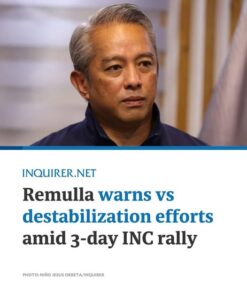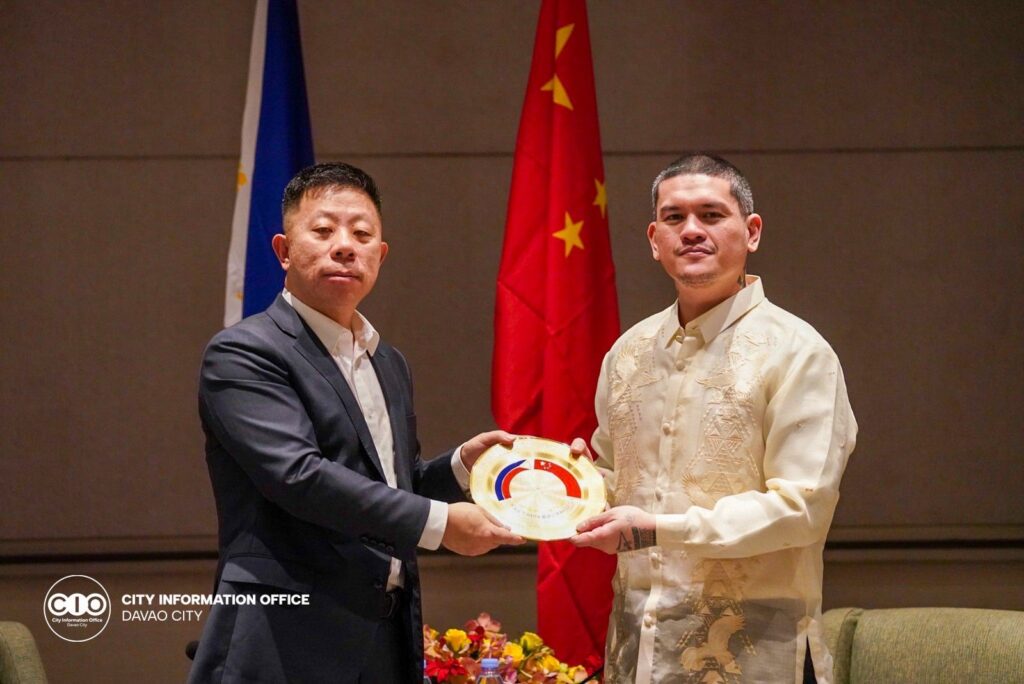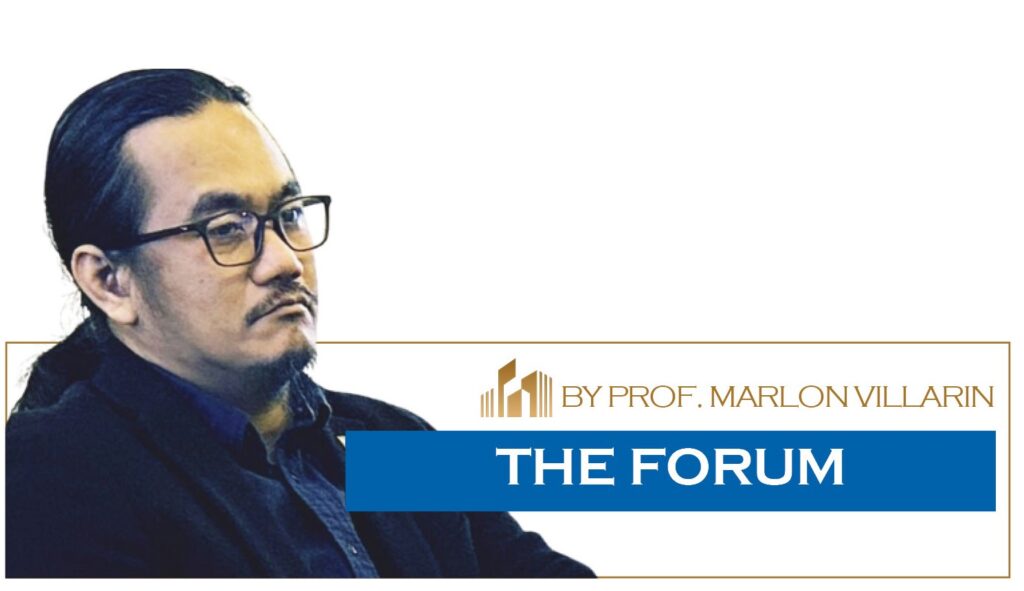📷: Courtesy of Renato Jr. Reyes | FB
By Renato Reyes Jr. | President, Bagong Alyansang Makabayan
The upcoming rallies on November 16 to 18 have sparked public discussions about “destabilization” efforts against the Marcos government, purportedly by groups associated with the previous administration. Names have been floated and are reportedly being investigated. Mendiola has been declared a “no-man’s land” and a no-rally zone. Cases of inciting to sedition have been filed against individuals supposedly behind the clashes in Mendiola last September 21. There have been reported bomb threats in several universities over the past few weeks. Classes in Manila have been suspended from November 17 to 18 due to the Luneta event. Amid speculation on the real purpose of the 3-day rally, various groups have already sought to distance themselves from the event.
It appears that there are two planned rallies on Sunday, November 16 based on what we are hearing from media interviews. There will be one in Luneta and there will be another at the EDSA People Power Monument. Both have raised calls against corruption and for transparency and accountability. However, the groups and personalities organizing the rallies are associated with the previous administration, have been opposed to the impeachment of the Vice President and have themselves been entangled with the flood control plunder and other anomalies.
This latest episode in the unfolding political crisis in the Philippines is the immediate result of the contradictions between reactionary factions fighting for political survival and control over the reactionary state. While both the Marcos and Duterte camps have spoken about corruption, both are also involved in many corruption issues, whether it’s flood control, other infrastructure, confidential funds and unprogrammed appropriations. Both cannot claim to be crusaders against corruption.
It is possible that people, especially from the working class and poor communities, will again be mobilized for these rallies, but the end goal seems to be more about self-serving political ends rather than a genuine concern for the plight of the poor. Meanwhile, as early as now, the Marcos regime is signaling what could be a heavy-handed response to its political rivals, threatening to arrest protesters who dare march to Mendiola. Political repression has been one of the default responses to any “destabilization” attempt against a sitting president. Not long ago, we saw Gloria Macapagal Arroyo declare a state of emergency and engage in a crackdown on dissent during the height of calls for her ouster.
It needs to be pointed out that it is the crisis inherent in the entire bankrupt system which is the real cause of “destabilization”. Sobrang bulok ng sistema at mga namumuno kung kaya’t may krisis tayong kinakaharap.
In the Philippines, because of the semi-feudal and semi-colonial character of society, because of the persistence of foreign domination, a backward agrarian and preindustrial economy and bureaucrat capitalism, the country is in a permanent state of crisis. The people will always end up with deep discontent and will be moved to assert their basic democratic interests amid the shameless corruption and oppression by the ruling elite.
Corruption and the endless squabbling among factions of the ruling classes are some of the actual causes of political crisis and “destabilization”. The factional fighting intensifies as the economic pie shrinks and as one faction tries to get more than the others. The nation is already destabilized by the unmitigated thievery in government. It will be further destabilized by wholesale fascist repression and selective accountability.
As we have seen in our history, replacing one corrupt regime with another corrupt regime will not really solve our problems. Any outcome that seeks to install the current Vice President as the new President will not be for the benefit of the people. Any outcome that seeks to impose a military junta will not be for the benefit of the people. Any outcome that seeks to use working people and the poor as mere pawns while the same ruling classes reap all the benefits is not real change. And any outcome that will use political repression, martial law, a state of emergency or similar fascist instruments against ALL forms of dissent will only add fuel to the crisis because the people will resist.
While we unequivocally oppose a Duterte restoration, this is not an endorsement of the current Marcos regime. There will be no replay of “Marcos pa rin!” chants. Marcos too has to be held accountable for corruption and our efforts at doing so should not be construed as an indirect support for a Duterte restoration. Both the Marcos and Duterte dynasties represent the long-standing problems of bureaucrat capitalism, foreign domination and fascist repression that has kept the Philippines poor and its people perpetually oppressed.
Amid the looming political storm, we must not lose sight of the goals of the anti-corruption movement – to hold everyone involved, including the two highest officials of the land, accountable. The anti-corruption movement is not in service of any politician nor any faction of the ruling class seeking to perpetuate itself in power. Many are already calling for a change in the system, not just a change in leaders. Most are dissatisfied with mere optics and sound bytes as accomplishments.
Now is not a popcorn moment where we sit back and watch the Marcos and Duterte camps expose each other’s corruption. Now is a time to act to make sure neither one of them escapes accountability as we push for real, fundamental changes in society.
Genuine change is not just replacing one corrupt politician with another corrupt politician. Change must mean dismantling the corrupt system of bureaucrat capitalism and truly empowering people from the marginalized sectors – the workers, peasants, urban poor, indigenous peoples, women, youth, fisherfolk and so on. It is not change when the same dynasties remain in power while the people do not have a voice in government. Genuine change must also mean socio-economic reforms, not just a continuation of neoliberal economic policies and foreign impositions. Real change must mean respect for human rights, and an end to impunity, not a continuation of fascism and state terror. Real change is freeing the country from foreign dictates, foreign troops and bases. Real change will require not just one or two rallies, but the sustained mobilization of the people over a longer period of time, until they gain enough strength to dismantle all the oppressive and coercive instruments of the system.
In the coming days, remain vigilant and continue to demand accountability and real change. And know who the real “destabilizers” are.




